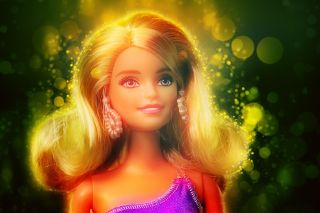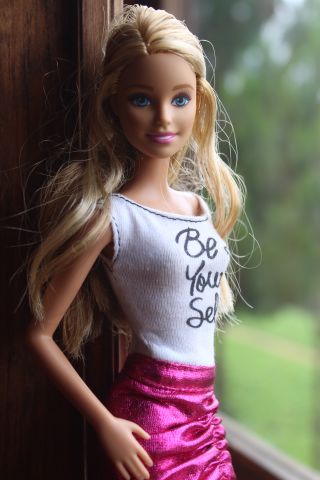Identity
Barbie Is a Non-Mom
No apologies. No shame. No stigma.
Posted July 27, 2023 Reviewed by Gary Drevitch
Key points
- Non-parents learn potent life lessons from a wide variety of experiences.
- The new Barbie film cast her role in my life in a new way, as an inspiring non-mom.
- Barbie can help decode the envy some parents feel for non-parents.

I didn’t plan on seeing Greta Gerwig’s new film Barbie until I read a review that mentioned she dons Birkenstocks partway through the film. This I had to see, since I couldn’t picture those molded, tiptoed feet with impossibly high arches smushing into homely, broad-toed and flat cork-soled slides.
By the time I got my first and only Barbie—the original Barbie—I was already an avid reader of women’s biographies. Amelia Earhart, Marie Curie, and Eleanor Roosevelt were my early sheroes. It’s only today that I recognize that Barbie, that impossibly figured plastic doll, inspired me, too.
While Amelia, Marie, and Eleanor had already secured their posterity, Barbie blew open doors to possibilities. She managed her life and lived her choices as a strong, independent woman. Her man Ken was a companion, more a supportive sidekick than guardian of his woman’s development. That she didn’t go on to become a mother was revolutionary.
Barbie offered an exciting alternative to the 1950s model stay-at-home mom. Without me realizing it, she seeded my fantasies and formed the basis of my aspirations for success and dawning confidence. If she could do it, so could I. This is the magic of Barbie.
I believe my aunt sent me my Ken doll — the original version, with felt-like hair that was quickly rubbed off. As I entered puberty and learned about sex at a slumber party, he and my Barbie engaged in a range of romantic antics born of adolescent imagination. Then Ken abandoned my Barbie for my younger sister’s new model, a brunette as I recall. I felt no rancor while leaving them both behind. There was a whole world out there I was ready to explore.
Through Barbie’s eyes (Ken’s, too), we envisioned possibilities. Whether we manifested any of those possibilities depended on our realities. My career evolution rivaled hers, from babysitter to swimming instructor, secretary, paralegal (no law school for me after that), corporate exec, consultant, and author. I lived my professional life in chapters of accomplishment.

Barbie was more than a little materialistic, to be sure. But like me, she paid her own way with ever more lucrative jobs. She broke glass ceilings made of plastic and spent her earnings on real estate, luxury goods, and an ever-expanding wardrobe. She set her sights high, and so did we.
In that way, I think Barbie helps decode why parents sometimes feel envy and disdain for those of us without kids. Heck, we got to continue our revelry while they knuckled down with childrearing.
As for the common assertion that non-parents are immature or self-centered, our upbringing and life experiences offer sources for development of our character and personal ethos. Options and routes other than through parenthood present potent life lessons—through loss, travel, financial issues, health conditions, volunteerism, philanthropy, and relationships of all forms. The list is endless, with plenty of content to balance life lessons offered by parenthood.
Consider instead that we’re simply crafting lives given our circumstances, whether chosen or imposed. Picture Barbie and Ken growing up, if you will, in a world of peril and possibilities.
In my world, Barbie never uttered a word about not having kids. Instead she inspired me to craft a dynamic life based on other pursuits. She made it okay not to be a mom, even if only in our fantasies.
That’s my takeaway from the film: We all warrant admiration and respect for the lives we craft, and how we integrate the life experiences that ensue. Your Barbie and mine may have shared some of the same aspirations. I don’t remember arguing over whose were best.


